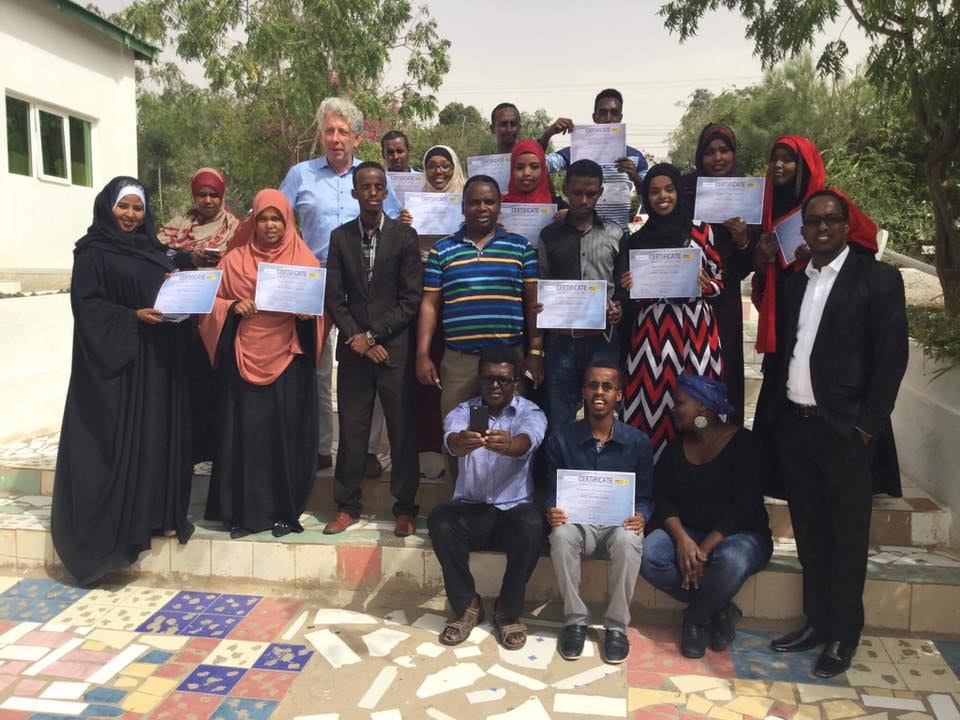In the second week of July, I was in Hargeisa, the capital of Somaliland. There, I organized Huricap, a program of Amnesty Netherlands, committed to human rights education in Africa, a workshop on the investigation and documentation of human rights violations.
There is, probably, a good chance that you do not know the country. Somaliland counts about 4 million inhabitants on a surface of four times the Netherlands. A quarter of the population lives in Hargeisa. No government nor the United Nations recognize this country, which was previously the northwestern part of Somalia and declared itself independent in 1991. Somaliland, the third most poorest country in the world, is perceived by observers as a reasonably functioning democracy in a region of war. International NGOs and the World Bank are very active, but work in Somaliland is not easy.
Driving through Hargeisa teaches me a lot. In the civil war that preceded independence (1988-1991), the city was completely destroyed. The center has a few high office buildings, but the streets are often untouched and the deep poverty is everywhere. I do not venture far beyond Hargeisa because of the security situation. I’m on my way to speaking to all kinds of representatives from government and relief organizations. I also go to displaced camps, where tens of thousands of people left their home after their cattle died of drought. Nobody does anything for us, say the residents of the camp that they themselves baptized ‘Istanbul’. Gangs burn fire tents to force them to leave. There are eight women and seven men participating in the workshop, all twenties working with local human rights organizations. Topics such as gender-related violence (there are no female agents at police offices) and women’s circumcision get a lot of interest, but also the prison conditions and the displaced camps. Some women talk very softly, the trainer says, “Human rights defenders speak loudly so the authorities will hear them.” After a few days, they are much less reluctant.
There are eight women and seven men participating in the workshop, all twenties working with local human rights organizations. Topics such as gender-related violence (there are no female agents at police offices) and women’s circumcision get a lot of interest, but also the prison conditions and the displaced camps. Some women talk very softly, the trainer says, “Human rights defenders speak loudly so the authorities will hear them.” After a few days, they are much less reluctant.
I am very impressed with the participation of the participants and the quality of the training. This is not a one-time event, but a structured one-year program. I say in my slogan: “This country needs you” – this country with immense poverty, a major security issue, the Al Shabaab terrorist movement, the pressure of the large numbers of displaced persons, an inexperienced government. Then fifteen young, enthusiastic people who can monitor and report on human rights throughout the country are a great asset.





























